Ethical Corporation goes to Vietnam to learn how the 40-year-old firm is championing biodiversity with its ambitious new sustainable sourcing strategy
Standing in dense rainforest in central Vietnam, Le Trong Trai, director of the Viet Nature Conservation Centre, bends to inspect a camera wrapped around a tree, 40cm from the forest floor.
The camera trap, which is triggered by movement, is one of 200 placed in a grid around the 20,000 hectare Khe Nuoc Trong (KNT) forest to build up an inventory of what is thought to be the richest but also most threatened biodiversity “hotspots” on the planet, home to four of the IUCN’s top 40 globally endangered species.
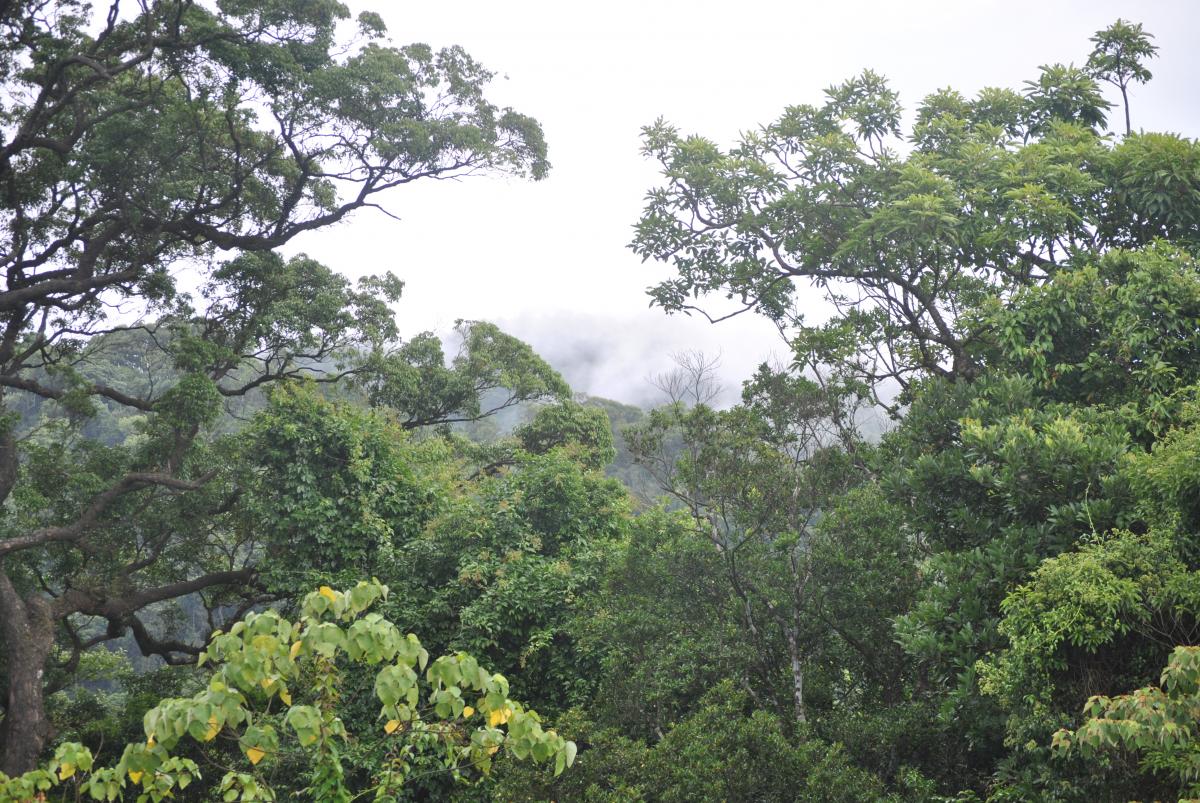
The cameras in 2013 captured a blurred image of the rarest mammal known to man, the Saola, nicknamed the Asian unicorn because of its long straight horns and striking white facial markings. When government forestry officials scouting out the boundaries of a park south of here with WWF came across a skull in 1992, WWF described the find as “one of the most spectacular zoological discoveries of the 20th century”.
Trai, who has worked in conservation in this Annamite mountain region for 35 years, holds the distinction of being the only person known to have actually seen a Saola alive.
Yet it is a fair bet that in his 35 years of conservation work he has never seen the likes of the bizarre species that now stands before him: a dozen journalists from Mexico, Australia, Lebanon, the UK, Indonesia, Malaysia, Korea and Japan, sweating profusely in the extreme humidity and long mosquito-proof clothing, jostling to take his picture with their iPhones.
We are here to witness the launch of a new chapter in the history of The Body Shop, the company started by Anita Roddick 40 years ago with a mission of ethical sourcing of ingredients and a “trade, not aid” mantra. The company, which was bought by L’Oréal in 2006 and shaken by Roddick’s death a year later, was considered by many to have lost its campaigning way–and with it many of its customers to lower-cost, edgier and home-grown competitors in many of its markets.
Enrich, not exploit
But the company, under its new CEO Jeremy Schwartz, is hoping to rekindle the passion and energy brought to it by Roddick, engaging customers in its new mission to “enrich, not exploit” the planet’s dwindling resources.
The commitment, backed by 14 new stretching sustainability targets to be met by 2020, is not short of ambition, It is the start of a process towards The Body Shop becoming the “world's most ethical and truly sustainable global business”.
Its first consumer campaign, which will be launched in stores and on social media at Christmas, will urge customers to help protect one square metre of the 20 million square metre (20,000 hectare) forest with every purchase.
The “Help Reggie find love” campaign features the mournful face of Reggie, the endangered red-shanked douc, who has trouble finding mates to “hang out with” because of threats to the doucs’ habitat, mainly poachers, who hunt the strikingly beautiful primates to sell as pets and for Chinese medicine.
Money raised through the campaign will go into a voluntary carbon offsetting scheme, managed by the UK conservation charity World Land Trust.
Earlier, we had been stopped by the side of the road by the park’s guards, who had spotted the elusive primates in the distant treetops. As we excitedly strained to find them through the guards’ high-powered telescopes, Roger Wilson, director of conservation for the trust, explained that the douc is prized as a clean source of meat by many locals. Despite the lingering legacy of the millions of litres of Agent Orange defoliant dropped here during the Vietnam war, KNT was largely unaffected, its trees an uncontaminated source of food for the animals who live there.
Besides the saola, other critically endangered species are the Edwards’s pheasant, the Bourret’s box turtle and the prehistoric-looking pangolin, one of the top 10 animals Sir David Attenborough has said he would want to rescue from extinction.
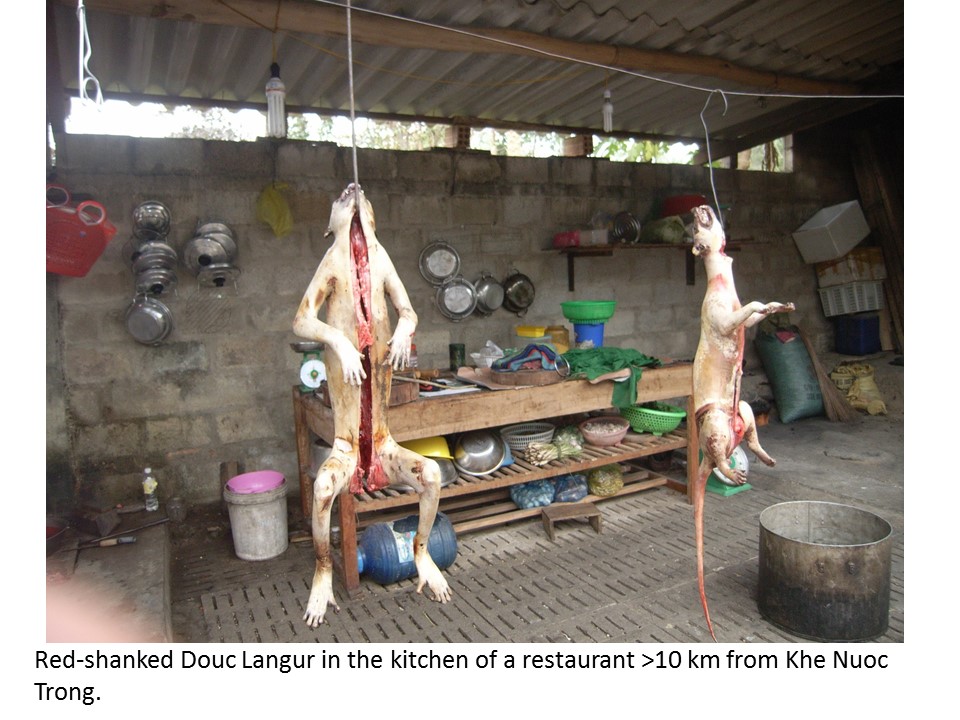
“I’ve been working in conservation for 45 years and I’ve never seen a forest with so much abundance of wildlife,” says Wilson. “There are almost 40 globally endangered species in this corridor. I’ve never been in a forest with four critically endangered species. It’s very, very special, and it is also under incredible threat.”
Until 2007 Khe Nuoc Trong was commercially logged. But then the province of Quang Binh gave the forest watershed status to safeguard the river that provides the region’s drinking water. But this protected only the 1,000 different species of trees, not the animal life it contains. Hunting in this narrow forested area continued unabated – unlike in the Phong Nha-Ke Bang national park to the north of KNT and adjoining forest in the neighbouring province of Quang Tri, which had been given natural reserve status.
In 2015 Viet Nature Conservation Centre took the unprecedented step of signing a 30-year agreement with the provincial authorities of Quang Binh to lease 800 hectares of the forest for conservation and research purposes, and manage the rest of the 20,000 hectares as if it was a de facto nature reserve.
The 3,000 indigenous people who live in the five villages on the outskirts of the reserve are allowed to take non-timber bounty, such as rattan, palm leaves, fish, honey, and non-protected animals, such as wild pig, but only enough to meet their own needs.
Death traps
Unfortunately, the methods used by hunters are indiscriminate, catching rare as well as permitted animals in their snares. “The hunting is very intense,” says Wilson. “They will lay hundreds of traps in long lines to make a fence, with snares at gaps in the fence. Virtually everything that moves on a hillside will be channelled there and then caught, gathered up and then sold on to traders or middle men, or restaurants in local villages.”
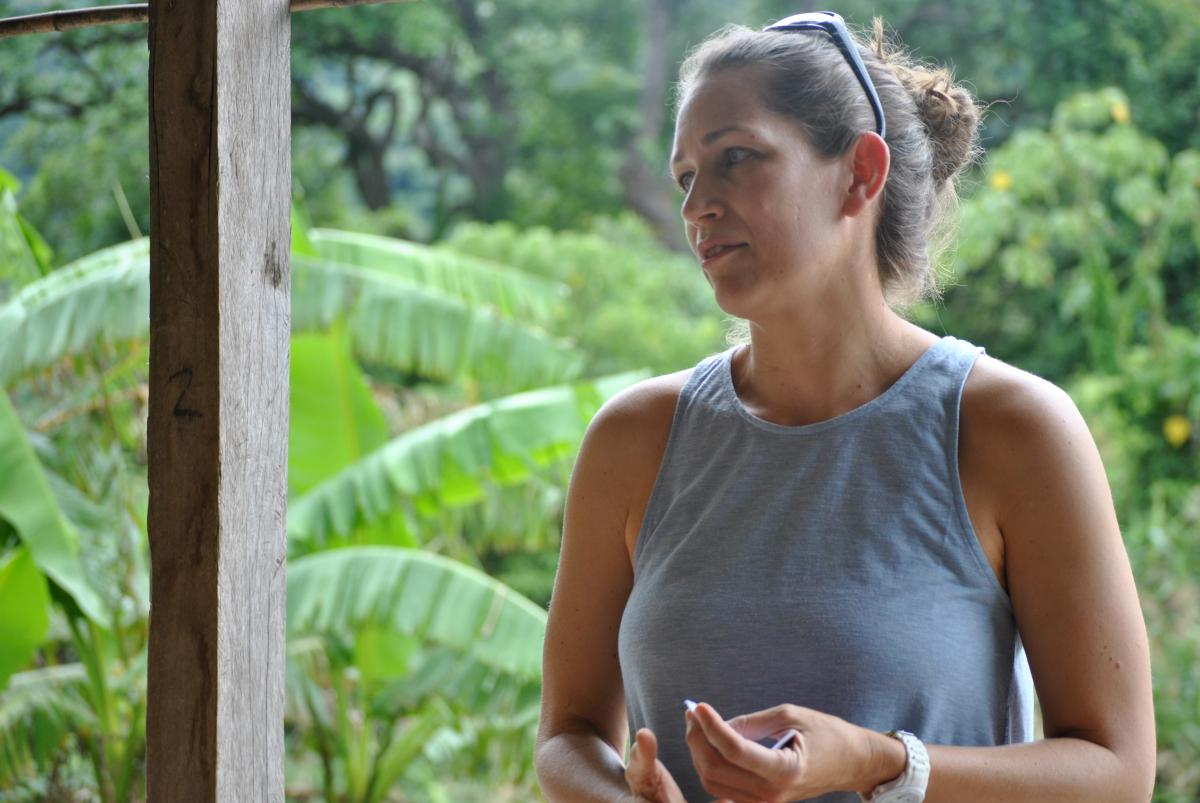
Body Shop's initial £100,000 investment, and the money raised through its campaign over the next couple of years, will enable Viet Nature to hire more local people to become park rangers, and install more infrared cameras to catch poachers and build up a dataset of the wildlife in the forest.
It will also go to educate local people about the importance of protecting biodiversity, and how they can raise alternative income from the forests without hunting, says Tuan Anh Pham, president of the Viet Nature Conservation, who has been working with the local communities surrounding the park since 2007, first for the Dutch NGO Bird Life International and then Viet Conservation.
She points out that in the past local people have always been enlisted to work on conservation projects funded by corporate sponsors, most notably Toyota: "But we are not a development NGO. The funding for community development is quite limited."
This will change under the World Land Trust's scheme, which will have to meet strict criteria for community development in order to get accreditation under the Community Climate Biodiversity Standard. The certification scheme was set up by five NGOs to help both governments and the private sector design carbon offsetting projects that promote communities and biodiversity as well as preventing deforestation.
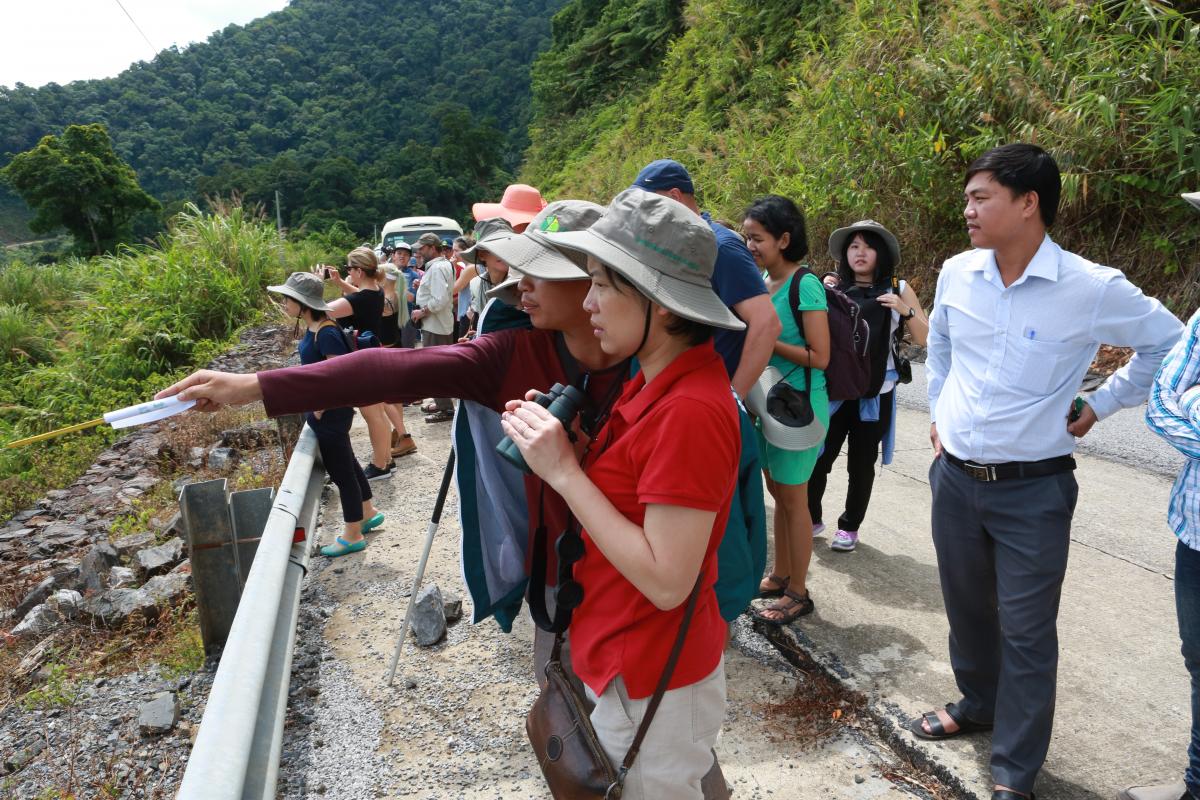
The focus on community involvement is a good fit for Body Shop, which is interested in much more than offsetting its CO2 emissions. Kate Upshon, The Body Shop’s international corporate responsibility manager, explains that one reason it chose this project in Vietnam, the first of what is expected to be three globally, is because Body Shop has a goal of doubling the number of ingredients it sources from local communities, from 19 to 40, by 2020.
In a recent species-mapping exercise, scientists found 300 species of plants with commercial potential, including several contenders for Body Shop. Exploiting them would give the communities a far more reliable income than they currently get from poaching and add to the benefits they will get from the carbon funding, Wilson said.
Upshon says it will take three to five years for any new ingredients from Khe Nuoc Trong to make it into Body Shop’s products. The next step for Body Shop’s sustainable sourcing team is to test a shortlist of potential ingredients for efficacy and consider how they would be best used in their range of products. Then, beyond all the safety and regulatory compliance issues and the mechanics of getting an ingredient into products on shelves around the world, there is the close work Body Shop will do with the communities.
“We have to put down the right foundations, ensuring we don’t exceed penetration rates or create a dependency culture. Also we have to be confident that it’s an ingredient we will be able to use for a long time. The aim is to create sustainable livelihoods – not the opposite,” Upshon says.
One of Body Shop’s new sustainability commitments is to ensure that 100% of its 800 natural ingredients are fully traceable and sustainably sourced – up from 40% now. “All of our community traded ingredients are traceable, down to the name of the farmer and the square footage of land,” Upshon says. “We will be moving the application of that knowledge to all 800 ingredients.”
Body Shop knows it has bitten off a big chunk to chew. Its parent company L’Oréal has nearly completed the exhaustive process of making its palm oil supply chain fully traceable and sustainable. “It is a very big piece of detailed work,” Upshon acknowledges. “But we are confident we will hit that 100% target, though it will take until 2020 to do it."
In the case of Khe Nuoc Trong, not all of the commercially promising discoveries will be suitable for Body Shop's products, unless it wants to do a line in over-the-counter stomach remedies. So might there not be a conflict of interest there if what the communities most want to produce is of no use to the international cosmetics company?
“Of course we hope to be able to source ingredients from KNT but if it turns out that we can’t, we will still encourage Viet Nature to work with the local community on developing sustainable sourcing programmes that in turn help to protect the KNT forest,” says Kate Levine, director of corporate communications.
Upshon says safeguarding biodiversity while treating people fairly is Body Shop’s biggest priority. When Body Shop developed its new sustainability strategy with the non-profit Future-Fit Foundation, which has developed a set of business principles for firms to operate within the planet’s ecological boundaries, they were most struck by how rapidly the earth is losing biodiversity – 1,000 times more quickly than the background extinction rate. The World Wildlife Fund estimates in the past 40 years or more, populations of mammals, birds, reptiles, amphibians and fish have halved around the globe.
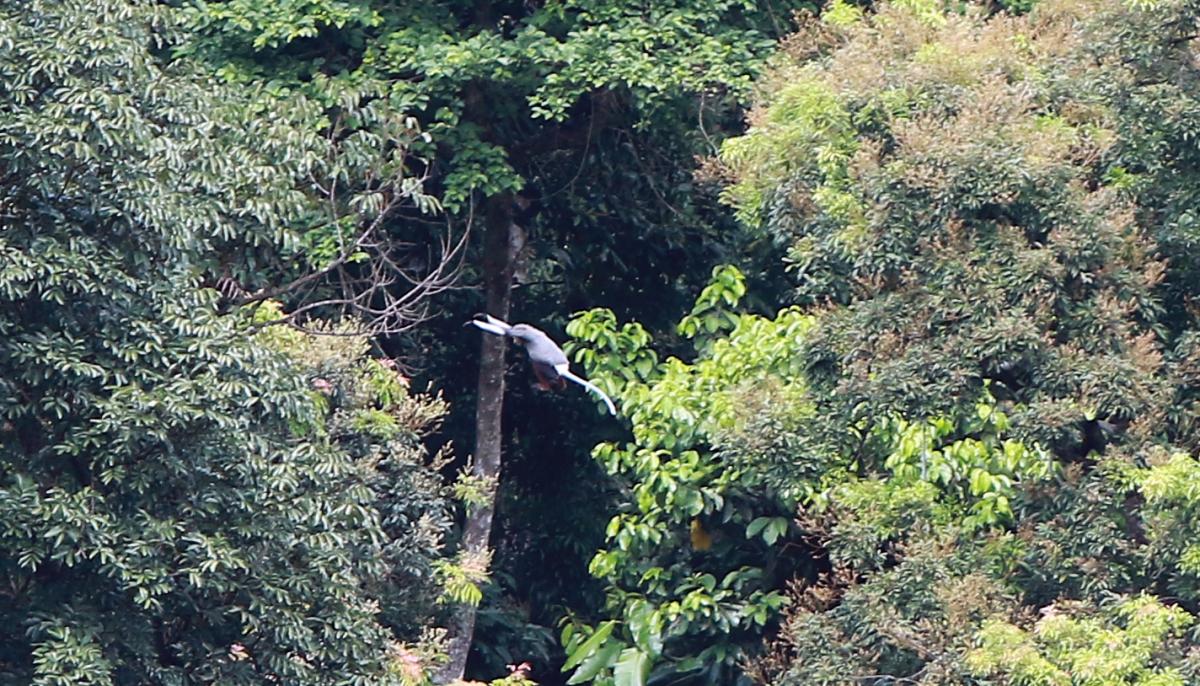
Upshon says the extent to which we rely on nature for its freely provided “ecosystem services” was brought home to her by the statistic that 87% of the most widely eaten crops are dependent on pollinators. “Once they go, that food goes. It’s a zero-sum game.”
Similarly, plants found in forests such as KNT have given humanity medicines, such as aspirin and treatments for high blood pressure and Hodgkin lymphoma. “If that is what we have discovered so far, imagine what we might still find, like a cure for cancer,” Upshon says. “When you think about it, what happens to Reggie matters to all of us.”
Getting to the bottom of palm oil
The Body Shop has run into controversy in the past over palm oil, which it still uses in its products, in contrast to its competitor Lush, which dropped palm oil in 2007. Although a founding member of the Roundtable on Sustainable Palm Oil, and committed to only using RSPO-certified palm oil, RSPO certification does not ensure traceability down to the farmer.
In 2010 Body Shop dropped Daabon Organic, which provided 90% of its palm oil, after newspaper revelations that that company had pushed for the eviction of hundreds of peasants in Colombia to develop a new plantation.
But last year parent company L’Oréal issued a statement acknowledging the shortcomings of RSPO certification, and announcing an innovative new sourcing method that will ensure it will work only with suppliers “who can guarantee that their raw materials are coming from plantations implementing sustainable practices including: the full compliance with local laws, a comprehensive and formal free prior and informed consent from indigenous people and local communities, the conservation and restoration of High Conservation Value and High Carbon Stocks Areas and finally, the protection of peats”.
L’Oréal said in the summer that by the end of this year it will have met that commitment for its entire palm oil supply chain.
See also: How The Body Shop is setting a higher bar for carbon offsetting

